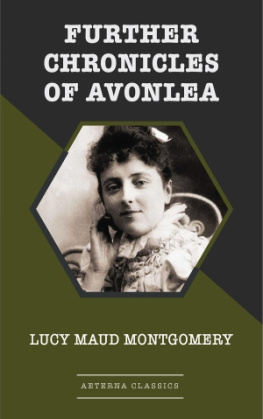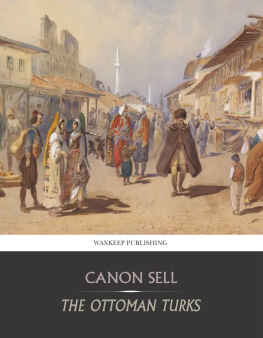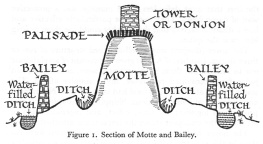Karl Schimmer - Two Sieges of Vienna by the Turks
Here you can read online Karl Schimmer - Two Sieges of Vienna by the Turks full text of the book (entire story) in english for free. Download pdf and epub, get meaning, cover and reviews about this ebook. publisher: Aeterna Classics, genre: Detective and thriller. Description of the work, (preface) as well as reviews are available. Best literature library LitArk.com created for fans of good reading and offers a wide selection of genres:
Romance novel
Science fiction
Adventure
Detective
Science
History
Home and family
Prose
Art
Politics
Computer
Non-fiction
Religion
Business
Children
Humor
Choose a favorite category and find really read worthwhile books. Enjoy immersion in the world of imagination, feel the emotions of the characters or learn something new for yourself, make an fascinating discovery.
- Book:Two Sieges of Vienna by the Turks
- Author:
- Publisher:Aeterna Classics
- Genre:
- Rating:5 / 5
- Favourites:Add to favourites
- Your mark:
- 100
- 1
- 2
- 3
- 4
- 5
Two Sieges of Vienna by the Turks: summary, description and annotation
We offer to read an annotation, description, summary or preface (depends on what the author of the book "Two Sieges of Vienna by the Turks" wrote himself). If you haven't found the necessary information about the book — write in the comments, we will try to find it.
Two Sieges of Vienna by the Turks — read online for free the complete book (whole text) full work
Below is the text of the book, divided by pages. System saving the place of the last page read, allows you to conveniently read the book "Two Sieges of Vienna by the Turks" online for free, without having to search again every time where you left off. Put a bookmark, and you can go to the page where you finished reading at any time.
Font size:
Interval:
Bookmark:
TWO SIEGES OF VIENNA BY THE TURKS
by Karl Schimmer
Published by Aeterna Classics 2018
All rights reserved. This book or any portion thereof may not be reproduced or used in any manner whatsoever without the express written permission of the publisher except for the use of brief quotations in a book review.
TABLE OF CONTENTS

PLAN OF VIENNA, WITH THE TURKISH APPROACHES.
The fall of Constantinople in 1453 was followed by a rapid extension of the arms and power of the conqueror, Mahomet II. Within a short period he subjected Persia, the whole of Greece and the Morea, most of the islands of the Archipelago, and Trebisond on the coast of Asia Minor, the seat of the Greek empire of the Comnenes. The last of that dynasty, Daniel Comnenus, he took prisoner, and shortly after caused him with his family to be executed for the alleged offence, probably a mere pretext, of an understanding with the Persians. In 1467 Mahomet took from the Venetians, in addition to several possessions in the Morea, the island of Euba, and, in 1474, Caffa from the Genoese. The hostilities in which he was soon afterwards involved with Persia hindered him from further pursuing his conquests against the Christian powers, who on their side were prevented by their unhappy dissensions and divisions from attempting to retrieve their losses. In general their campaigns against the Turks were confined to purely defensive operations, and it was not till a much later period that common need and danger produced a more general system of aggressive action. In 1480 Mahomet II. attacked the island of Rhodes, the conquest of which he had it much at heart to accomplish; he was, however, repulsed with great loss by its defenders, the Knights of St. John. Upon this repulse he directed his arms against Italy, took Otranto, and would probably have pushed his conquests further in that country, if death had not overtaken him, on an expedition to Persia, in 1481. He had overthrown two empires and ten other sovereignties, and captured more than 200 cities. He directed as an inscription for his tomb the following sentence, simple, but significant to his successors:I wished to take Rhodes and subdue Italy. His two immediate successors, Bajazet II., who reigned from 1481 to 1512, and Selim I. (1512 to 1520), prosecuted schemes of conquest in various directions. The latter was in particular the founder of an extensive naval power, before which those of Venice and Genoa, so considerable at that time, were compelled to quail. He conquered also Mesopotamia, Syria, Palestine, and Egypt, and reduced to subjection the powerful Sheikh of Mecca. In wisdom, however, in power, and in glory, this Soliman was surpassed by his son, the second of that name, the greatest of the Ottoman sovereigns, under whom the Turkish empire attained a pitch of splendour which has not been equalled before or since. In acquirements he was far beyond his age and country: in addition to the Turkish language, he was master of Persian and Arabic; he also understood Italian; and in that kind of metrical compositions which are called, in Turkish, Misen, the critics of that country pronounced him to exceed all others. In military achievements he was equally distinguished among the sovereigns of his race, and ranks with Mahomet II. as a conqueror. In the first year of his reign, he acquired in Belgrade the key of the Danube, and opened the way for his further advance into Hungary. In the following year, 1522, he carried into execution the unaccomplished wish and dying injunction of Mahomet II. in the subjection of Rhodes, and on Christmas-night held his triumphant entry into the conquered city. Soon afterwards he directed his forces again upon Hungary, in which country internal dissensions afforded him a favourable opportunity for the furtherance of his plans of conquest.
King Louis II. of Hungary, the feeble successor of his illustrious father, Ladislaus II., had ascended the throne in 1516, under the guardianship of the Emperor Maximilian I., and of Sigismund, King of Poland, his uncle. At the very commencement of his reign, an insurrection of his nobles threatened to deprive him of the throne. He had, moreover, mortally offended the ambitious John Zapolya, Count of Zips, who held as wayvode the government of Transylvania, and excited him to the most destructive projects by passing him over on the occasion of the election to the office of Palatine. This man, whose name, like that of Tekeli, is so intimately connected with the misfortunes of his country, was born in 1487, the son of Stephen Zapolya, one of the best officers of the great king and warrior Mathias Corvinus. Inheriting the rewards of his fathers valour in the shape of vast possessions and important governments, he was distinguished through life by restless ambition, great talents for intrigue, and on some occasions by acts of inventive cruelty which exceed in extravagance of horror all that Suetonius has related of the Roman emperors. By a reckless acceptance of Turkish aid, and by treachery as reckless to his engagements with that power, he partially succeeded in the great object of his adventurous lifehis establishment on the throne of Hungary. He died a natural death in 1540, leaving an infant son, who succeeded him in the government of Transylvania, but who struggled in vain to establish himself in that of Hungary. With his death in 1570 this race of able and dangerous men fortunately became extinct.
Soliman found little resistance to his invasion of Hungary. Peterwaradin and the Bannat fell quickly into his hands; and on the 20th August, 1526, occurred that disastrous battle which in Hungary still bears the name of the Destruction of Mohacs. Zapolya remained with his forces motionless at Szegedin, careless of the fate of kingdom or king; while the latter, with scarcely 20,000 men and little artillery, stood opposed to a tenfold superior force of the Turks. The wiser heads of the army advised the waiting for reinforcements, but they were overruled by Paul Timoreus, Archbishop of Koloeza, a man who seems to have united every quality which could unfit him for either the sacred functions he had abandoned or those which he had assumed of military command. The arrival, still hoped for, of Zapolya, with the excellent cavalry of Transylvania, might have saved Hungary, but it would have deprived the prelate of the chief command; and the latter preferred to risk his own life, that of the sovereign, and the fortunes of Hungary, in premature and unequal battle. In less than two hours Soliman had gained a complete victory; the prelate paid the penalty of his presumption with his life, and with him perished the flower of the Hungarian nobility, many of his episcopal brethren, and lastly the unfortunate King Louis himself, suffocated beneath his floundering horse, and borne down by the weight of his armour, in a swamp through which he was urging his flight. The jewels in which the plume of his helmet was set led ultimately to the discovery and identification of the body. Scarcely 4000 men, led by the Palatine Bathory, escaped under the cover of night from this disastrous battle. Soliman pushed forward his troops, intoxicated with success, as far as the Platten and Neusiedler lakes, laid waste the country, and burnt Fnfkirchen and Pesth. On the news, however, of disturbances in Asia, he suddenly retired, dragging with him 200,000 persons into captivity, but soon to re-appear in terrible power at the gates of Vienna itself.
The circumstances of the succession to the throne of Hungary were well calculated to invite and facilitate that return. Upon the death of Louis without issue, in virtue of his double connexion by marriage with the Archduke Ferdinand of Austria (afterwards Emperor), and of a treaty concluded between his father Ladislaus and the House of Austria, the right to the throne devolved upon the latter, of which the Archduke was the representative. The royal widow, Mary, sister to Ferdinand, convoked, for the purpose of ratifying this arrangement, a diet at Presburgh, whither she had been compelled to fly when Pesth surrendered. Her intention, however, was frustrated by the counter measures of John Zapolya, who, after solemnizing the obsequies of Louis at Stuhlweissenburg, had, with the assent of many of the magnates, proclaimed himself king, and had caused himself to be crowned on the 11th November, 1526. He appealed to an ancient law by which no one but a born Hungarian could occupy the throne, although it had never been universally acknowledged, and had been set aside by the recent arrangements. Ferdinand now sent against him an army under the command of a brave man, Nicholas, Count of Salm, who defeated him near Tokay. By the exertions of the faithful Palatine Bathory, a considerable party was created in favour of Ferdinand, and his coronation was celebrated at Pesth on the 21st August, 1527. After two successive defeats at Erlau and Szinye, Zapolya was compelled to abandon Transylvania and to take refuge in Poland. The magnates of Hungary now came over in great numbers to the party of Ferdinand, and he rejoiced in the prospect of an undisturbed possession of his newly acquired sovereignty. Zapolya, however, though on all sides deserted, and destitute of troops and money, persevered in his designs, and made every exertion to gain over to his cause the nobility of Poland and their king, Sigismund, his brother-in-law by marriage with his sister Barbara. These attempts were in most instances fruitless; but he succeeded with Jerome Laski, Wayvode of Siradia, a man of resource and enterprise, who showed hospitality to the fugitive, and promised him every possible support. Laski, however, conscious of the inadequacy of his own means to effect his friends restoration in opposition to the House of Austria, gave him the deplorable advice to betake himself to the Sultan. We are assured by several contemporary writers that Zapolya long hesitated to follow this fatal counsel; and it is not incredible that he felt some compunction in throwing himself into the arms of the arch enemy of Christianity, and in possibly exposing half Europe to Mahometan invasion. The condition, however, of his affairs, and his ambition, urged him to the desperate step, which was somewhat reconciled to his conscience by the knowledge that Ferdinand himself had despatched an embassy to Constantinople to conciliate the good will of the Sultan. Zapolya overlooked the distinction that Ferdinands object was to establish peace, while his own was to kindle a desolating war of race and religion. So soon as his resolution was adopted, Laski undertook in person a journey to Constantinople, accompanied by a renegade Venetian, Ludovico Gritti, who served him as interpreter. He found ready audience from the Sultan, who asked for nothing better than pretext and opportunity to lead his hitherto unconquered forces into the heart of Christendom. The Sultan had also been highly irritated by the injudicious behaviour of Ferdinands envoy, a Hungarian named Hobordansky, who had chosen this unpropitious juncture to demand not merely the unconditional recognition of Ferdinand as king of Hungary, but also to insist with violence on the restoration of Belgrade and Jaicza. Demands such as these, addressed in peremptory language to a sovereign flushed with recent conquest, produced their immediate and natural consequences in facilitating the designs of Zapolya. A treaty was without delay concluded, by which Soliman undertook to effect his restoration to the throne of Hungary. Zapolya, by secret articles of this compact, engaged in return not merely to pay an annual tribute in money, but to place every ten years at the disposal of the Sultan a tenth part of the population of Hungary, of both sexes, and to afford for ever free passage through the kingdom to the Ottoman forces. At the same time Soliman dismissed the envoys of Ferdinand with the menace that he would soon come to drive the latter out of a kingdom which he had unjustly acquired; that he would look for him on the field of Mohacs, or even in Pesth; and should Ferdinand shrink from meeting him at either, he would offer him battle under the walls of Vienna itself. It was thus that through treason in one quarter, ill-timed audacity in another, and the restless spirit of conquest and progression which the Turks derived from their Tartar origin, the crisis arrived so pregnant with evil consequences to an important portion of Christian Europe.
Next pageFont size:
Interval:
Bookmark:
Similar books «Two Sieges of Vienna by the Turks»
Look at similar books to Two Sieges of Vienna by the Turks. We have selected literature similar in name and meaning in the hope of providing readers with more options to find new, interesting, not yet read works.
Discussion, reviews of the book Two Sieges of Vienna by the Turks and just readers' own opinions. Leave your comments, write what you think about the work, its meaning or the main characters. Specify what exactly you liked and what you didn't like, and why you think so.












